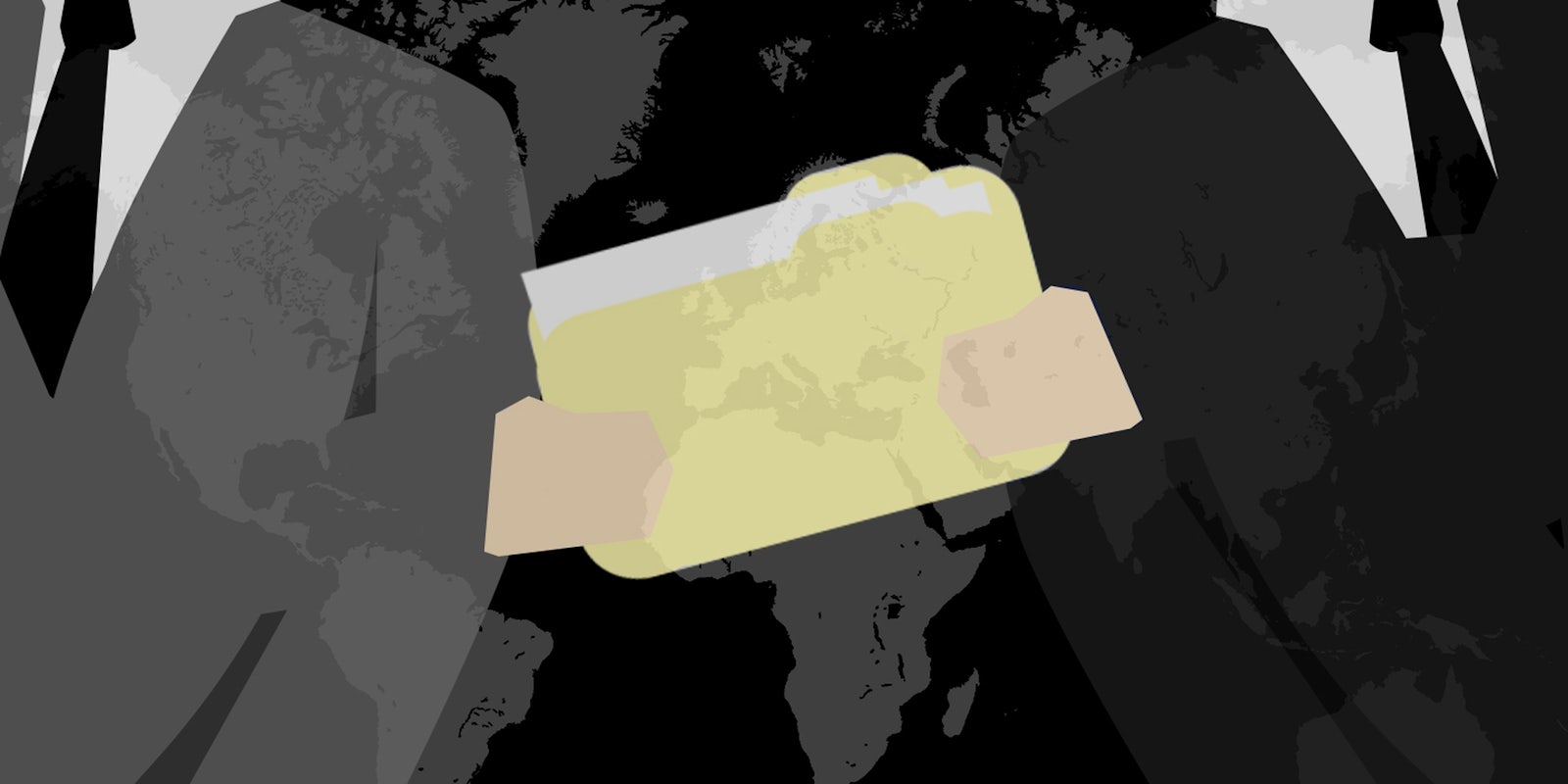WikiLeaks on Thursday published an updated version of the negotiating texts of a controversial and highly secretive trade agreement between the United States and 11 other member nations.
Critics warn that the international agreement, dubbed the Trans-Pacific Partnership (TPP), proposes sweeping changes to intellectual property norms that would stifle freedom of expression online and impose harsh monopoly rights on new drugs, vaccines, and agricultural products.
While most international trade negotiations involve a good deal of secrecy, controversy enveloped the TPP when hundreds of corporate advisors were given access to the texts, even as the public and members of Congress were being kept in the dark. The negotiating texts of the TPP’s intellectual property chapter, dated August 2013, were published by WikiLeaks last fall. The updated 77-page version, now available on WikiLeaks’s website, originates from the Ho Chi Minh negotiations held May 2014.
Overall, the Obama administration’s continued efforts to seemingly put first the interests of industry lobbyists, while blocking journalists and public advocates from observing the negotiations, appears immune from the widespread criticism that resulted from the initial leak last November.
Some of the most-criticized passages are, however, now absent from the leaked version of the texts. WikiLeaks notes, for example, that surgical method patents had been removed. “Doctors’ groups said this was vitally important for allowing doctors to engage in medical procedures without fear of a lawsuit for providing the best care for their patients,” the organization said.
Foreseeable delays in the distribution of lifesaving medications is among the chief concerns raised by TPP’s critics. According to Public Citizen, a nonprofit group that examined the texts in collaboration with WikiLeaks, “Access to affordable cancer treatments in the U.S and 11 other countries would be delayed for years if terms revealed today in the leaked [TPP draft] were to go into effect.”
Nearly all of the changes proposed by the U.S. advantage corporate entities by expanding monopolies on knowledge goods, such as drug patents, and impose restrictive copyright policies worldwide. If it came into force, TPP would even allow pharmaceutical companies to sue the U.S. whenever changes to regulatory standards or judicial decisions affected their profits.
Professor Brook K. Baker of Northeastern University School of Law told the Daily Dot that the latest version of the TPP will do nothing less than lengthen, broaden, and strengthen patent monopolies on vital medications.
“Proposed language makes it easier to get successive, secondary patents on minor changes to or new uses of existing medicines and patent term extensions that increase pricing discretion and monopoly profits on vital medicines, but at the cost of reduced access to poor and uninsured patients,” said Baker, a senior policy analyst for Health GAP (Global Access Project).
Moreover, Baker said that while the negative effects of the IP provisions of the TPP would be most acute in poorer countries, the trade agreement would also tie the hands of policy makers in the U.S., as several of the provisions will require mandatory changes to U.S. law.
One proposal seen for the first time in the latest TPP draft concerns the use of biological medical products, or biologics, which are medicinal treatments derived from biological sources and include many new cancer treatments and vaccines.
“Public health systems in many countries cannot afford the $100k-plus price tags on most of these new cancer drugs, certainly most people worldwide cannot afford them on their own,” Public Citizen’s Peter Maybarduk, director of Global Access to Medicines Program, told the Daily Dot. “This means that people in need of treatment will suffer and, in too many cases, die, until affordable biosimilars can be brought to market.”
Additionally, rights groups such as Electronic Frontier Foundation (EFF) have taken issue with an addendum that would impose a legal obligation on Internet service providers (ISPs) to monitor the online activities of their customers for copyright infringement. ISPs would be further required to remove from the Internet content suspected of infringing copyright and retain the information of users who post said content. According to EFF, this would require member nations to adopt criminal sanctions for infringement that is done without a commercial motivation.
“The selective secrecy surrounding the TPP negotiations, which has let in a few cashed-up megacorps but excluded everyone else, reveals a telling fear of public scrutiny,” Julian Assange, WikiLeaks founder and editor-in-chief, said on Thursday. “By publishing this text we allow the public to engage in issues that will have such a fundamental impact on their lives.”
Illustration by Jason Reed


